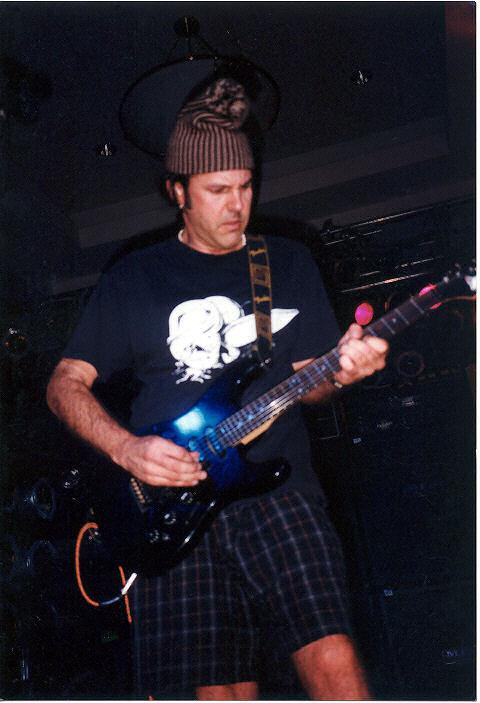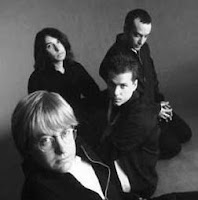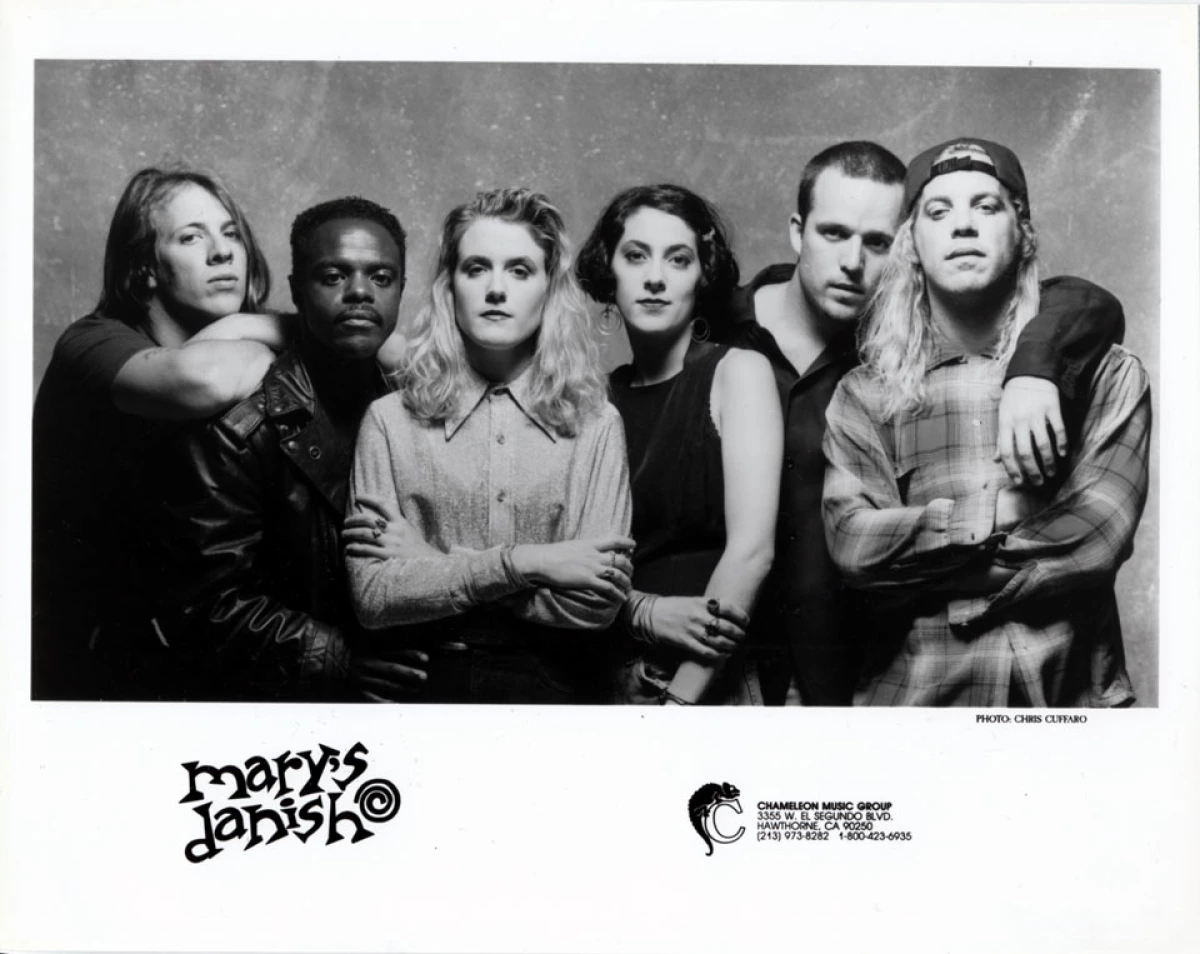It's About Time: A Conversation with Nic Dalton (Lemonheads)
Lemonheads Discography:
Hate Your Friends (TAANG!, 1987)
Creator (TAANG!,
1988)
Lick (TAANG!,
1989)
Lovey
(Atlantic, 1990)
It’s A
Shame About Ray (Atlantic, 1992)
Come on
Feel the Lemonheads (Atlantic, 1993)
car button
cloth (TAG/Atlantic, 1996)
The
Lemonheads (Vagrant, 2006)
Varshons
(The End, 2009)
Varshons
II (Fire Records, 2019)
Popular Tracks: It’s A Shame About Ray, Mrs. Robinson, Into Your Arms, If I Could Talk I’d Tell You, Big Gay Heart
What can’t be said about Evan Dando that he probably hasn’t already said himself? Legendary gadfly, lyricist, singer and leader, the man, the myth the legend that is essentially the Lemonheads had one of the most prestigious careers of the ‘90s before the bottom fell out. For a time between 1992-1994, he was the ‘it’ boy, the one everyone wanted to record with and all the girls wanted to be with. The most stable lineup of the band from 1992-1994 included Australian bassist Nic Dalton who lived through the success and everything that came with it to tell a heck of a story. This was an interesting interview because not only was Dalton in the band for a brief period of time but he also had a song on Ray, which was released before he joined the band. He is also an Australian music legend and was very gracious about talking about his long and storied musical history.
Pete Crigler: How did you get started playing music?
Nic Dalton: Learnt guitar when I was a teenager. Started playing in bands in high school.
Pete: What was the music scene in Australia like when you got started?
Nic: This was the early 80s. Lots of bands and venues. Radio stations, tv shows, magazines.
Pete: Tell me about The Plunderers and what ended up happening with those guys.
Nic: We formed in Canberra in 1984, had three main lineups and released half a dozen singles between 1985 and 1991. We played country, pop, punk, a bit like the early Replacements were live (or so I’ve been told). Sadly, Stevie Plunder took is life in 1996 and the band was no more. I still play music with two of the original drummers, Peter Velzen and Lindsay Dunbar.
Pete: How did Godstar come together and what was that time like?
Nic: In 1991 I wanted to play guitar in a band (as I played bass in Plunderers) so the band came together in winter of 1991. The lineup was my girlfriend Alison, my ex –girlfriend Robyn and my best friend Tom. Tom and I also formed Sneeze around this time and it was a very creative time, lots of songs being written and recorded. It was this period that Evan Dando walked into and we inspired him for the Ray album.
Pete: Tell me about how Half a Cow came into existence and what it was like running your own label?
Nic:
A local band The Craven Fops wanted to out a record and since we were both
fans, we offered to do it. Meanwhile, I was putting together an album of four
track recordings under the name the Love Positions and another local label
(Citadel) helped pay for that record. Along with a Love Positions single, we
had these three releases out in 1990. We sent them out to record stores and got
reviews and even made #2 in the singles and album charts for the Love
Positions. So, we were suddenly “on the map”!
The
mid-nineties saw a lot of money being thrown at the independent music scene (in
the wake of the success of Nirvana etc.) and Half A Cow was pretty much given
“free reign” to release what it wanted to between 1994 and 1999. There was too
much released: albums, cd singles, full colour posters, our support, expensive
videos. In one year (1995) there was a cd released every two weeks. It was too excessive and I believe a backlash,
from parts of the music industry and the fans alike, against Half A Cow formed.
Stores, who were persuaded to stock all these releases that didn’t sell and had
to returned, didn’t want to keep most of these releases in stock. Luckily for
me, I was able to leave the Universal and Festival deals (with both companies
losing hundreds of thousands of dollars) and retain the label 100%
independently.
In
1999 I became 100% independent again, overseeing all the manufacturing myself
and being in charge of the publicity and promotion myself (as Dave Chatfield
left after seven years managing the label). I have occasionally hired people to
help with the promo but it can be a huge expense. From the mid-00s onwards, cd
sales have dropped and been replaced over by download/streaming sales (which
don’t generate as much income) but I have managed to stay on top of it –
because of low overheads. But to get all philosophical: what is success? If it
was making truckloads of money, then Half A Cow hasn’t been successful. If
success is helping independent bands putting out their music and trying to stay
on top of paying them their share, then it has been.
Pete: How did you come into contact with Evan Dando?
Nic: I was in a band called the Hummingbirds and we toured with the Lemonheads (July 1991) and we became friends right off the bat.
Pete: When did you officially join the band and was it different than your previous bands?
Nic: I officially joined in May 1992 when we did the Shame About Ray film clip and photo shoot in LA. It was very different from all my previous bands. Main reason was it was based on another continent and I was touring an album I didn’t play on (although there was a song of mine on it “Kitchen”) and we toured the world (which I’d never done before). It was similar to the Hummingbirds because they were on a major label too. All my own music was on small, independent labels.
Pete: Had Ray already been recorded by
this time?
Nic: Yes.
Pete: What brought about the Mrs. Robinson cover and how do you feel about it now?
Nic: We were asked to do it because they wanted to add a video of it to the 25th Anniversary VHS release of The Graduate film. The label loved it so much they added it to the Ray album and released it as a single. It’s a great cover of a great Paul Simon song. I played it real loose (we ran though it twice then recorded it in one take) and I was surprised that the label loved it. But it has a certain charm. Recorded whilst on tour (in Berlin).
Pete: What was success like and how did it change the dynamic of the band?
Nic: Success? Not sure about that. Popular is the word you’re looking for. It was fun travelling around playing music, making friends, writing songs and doing art. Our popularity (up and down) didn’t change the dynamics of the band. Same guys at the beginning were the same guys at the end.
Pete: What was it like recording Come on Feel…?
Nic: Fun. Too much down time sitting around. If it was my band, I would have been much more productive than we were.
Pete: How did Sneeze come about?
Nic: Tom Morgan and myself starting writing a lot of songs so we started a band (we were also in our own bands - me Plunderers, him Smudge). This was in 1991. We didn’t play live until 1995. We haven’t played since the Half A Cow 25th birthday show in October 2015.
Pete: Is it true you started rehearsing for Car Button Cloth?
Nic: Yes, early 1996 in New York. But I had too much stuff going on back home in Sydney.
Pete: What ultimately caused you and David Ryan to leave?
Nic: We both said we’d leave after the last show on the Come on Feel tour and that was in August 1994. I didn’t consider staying on as I wanted to get back to Sydney and my own music. The Half A Cow label (and bookstore), my friends and family.
Pete: Have you had much contact with David and Evan in the last couple of years?
Nic: David not so much, although we Facebook occasionally. Evan I see pretty much every time he comes out to Australia. I may not always go and see him play but I might say hi at the soundcheck or he may even stay the night at my place. He will always be a great friend of mine whether I see him regularly or not.
Pete: What are you currently up to?
Nic: Music (the Gloomchasers, The Sticker Club, Chewee), art, writing, DJing, booking bands at my local bowling club, occasional “proper” job at the State Library of New South Wales doing digital audio work.
Pete: How is Half a Cow doing?
Nic: Still doing it. Putting out local bands and maintaining the back catalogue.
Pete: What do you think of the impact of alternative rock in the ‘90s?
Nic: I don’t.
Pete: What do you hope your and the Lemonheads’ musical legacy will be?
Nic: I hope it stays in print so people
can hear it.






Comments
Post a Comment